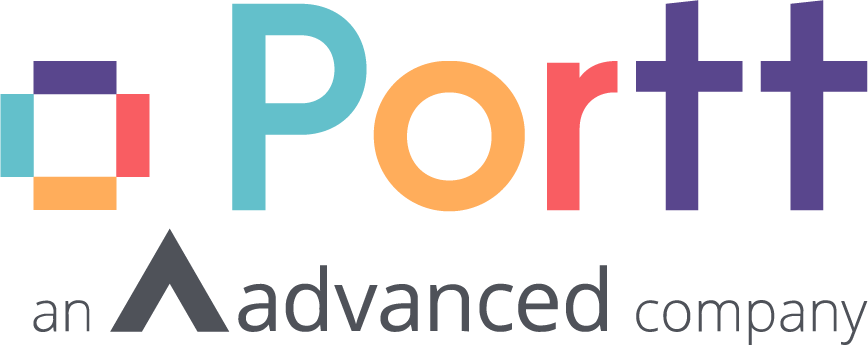
Research Shows Procurement Experts Hold The Key To Business Agility
A new report on the future of procurement in the ANZ region shows that 3 in 4 procurement professionals feel confident of meeting evolving challenges in the ever-changing business world. Increasingly, business leaders recognise the crucial role of procurement teams in helping to navigate periods of volatility and uncertainty.
Strategic procurement goes beyond strengthening bottom lines and driving efficiency: it’s about delivering a sustainable advantage to the organisation. By focusing on strategic procurement, supplier management, and risk mitigation, procurement teams can create a competitive edge that goes beyond cost savings.

Adapting to the New Age of Procurement
As the link to suppliers, procurement professionals hold significant responsibilities in mitigating inflation effects, ensuring supply continuity, adhering to regulatory requirements, enhancing sustainability, and addressing other key business priorities. Such diverse and impactful obligations require new supplier strategies, fresh insights, and a delicate equilibrium between conflicting goals.
Procurement has gone beyond being a matter of servicing and process optimisation – it’s an opportunity for building strategic, mutually beneficial partnerships. The most efficient way of doing something isn’t necessarily the best when it comes to strategic procurement as the Head of Procurement, Private Sector puts it:
“Solution-oriented, rather than a process. It’s having a mindset that asks: what’s the right solution for this? How do I then apply the procurement process to deliver that, rather than simply following that process?”

The Importance Of Business Agility
An agile business is a successful business. True business agility is crucial in today’s fast-paced and ever-changing business landscape. It refers to a company’s ability to adapt, respond, and thrive in a rapidly evolving environment. In an era of technological advancements, shifting consumer preferences, and unpredictable market conditions, businesses must be agile to stay ahead of the competition.
Agile companies can quickly identify emerging opportunities, pivot their strategies, and make informed decisions. This flexibility allows companies to effectively navigate challenges, seize new markets, and drive innovation. Business agility empowers organisations to be proactive, responsive, and resilient, ensuring long-term success and sustainability.

The Role Of Procurement Teams In Helping Achieve Business Agility
Procurement professionals are ready to lead the charge in enabling business agility. With 75% of ANZ professionals surveyed rating themselves as quite confident or very confident in meeting the evolving expectations of their business, the role of procurement teams must expand to enable the realisation of their full strategic capabilities.
#1. Relationship Building
In the words of Henry Ford, “Coming together is a beginning, keeping together is progress, working together is success”. Staying agile and addressing strategic objectives requires procurement departments to be more collaborative. To protect profitability in the face of inflation, it’s not about outmanoeuvring suppliers in negotiations but working together to find ways to reduce costs in the full value chain.
Procurement professionals who can develop, maintain and grow genuine relationships with suppliers can deliver security and resilience in the face of a changing business environment. They can also ensure uninterrupted servicing and mutually beneficial deals that help enterprises weather global fluctuations.
#2. Leveraging Supplier Data
With multiple objectives and constantly changing conditions, more information is needed than ever before, particularly about suppliers. Procurement departments are investing in technology solutions to efficiently manage supplier information and mitigate risk, delivering visibility across the supply chain and ensuring consistent real-time data is accessible to all stakeholders.
#3. Embracing Agile Technology
Procurement technology must keep pace with strategic-thinking professionals. Leaders must consider flexibility and scalability when selecting technology: will this software not only meet today’s challenges but remain relevant and applicable in the future? Scalable procurement technology that enables clear data visibility enables teams to spend less time on repetitive manual tasks and more time on strategic thinking and relationship building.
Technology that can easily integrate with – and improve upon – existing processes is key to freeing up more time for procurement teams. When supplier data is readily available and contract management is automated, teams are better able to leverage customer relationships and deliver innovative solutions that deliver benefits far beyond the procurement department.
#4. Driving Value Rather Than Cost Savings
Procurement shouldn’t be focused on how to do things cheaper. The main objective is how to do things better, to drive more value.
In maturing from a servicing capability to a strategic one, businesses must recognise the importance of doing things better, and in a way that drives mutual value, rather than simply minimising cost. Procurement teams can lead this way for agile businesses, helping to balance customer demands with business priorities and deliver business agility value.
#5. Risk management
In times of volatility and uncertainty, risk management becomes crucial. Procurement teams can play a vital role in identifying potential risks within the supply chain and developing strategies to mitigate them. By diversifying the supplier base, implementing contingency plans, and monitoring market conditions, procurement professionals can help businesses navigate disruptions and maintain continuity. This proactive approach not only protects the organisation’s operations but also contributes to its long-term sustainability.

Final Thoughts
Procurement departments play a critical role in maintaining business agility. The key to success lies in effective collaboration, ownership of supplier data, and embracing agile technology. With the right tools, procurement teams have the potential to deliver a sustainable advantage to businesses by going beyond their traditional roles of cost savings and efficiency.
Read the full report: Future-Focused Procurement: Forging Ahead in ANZ



